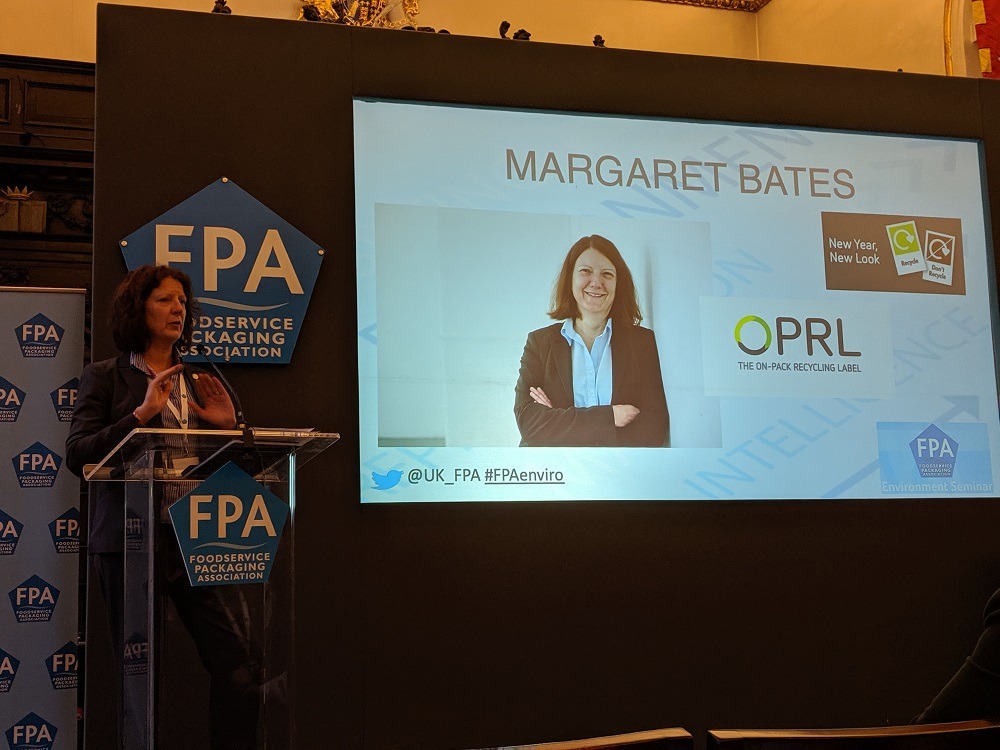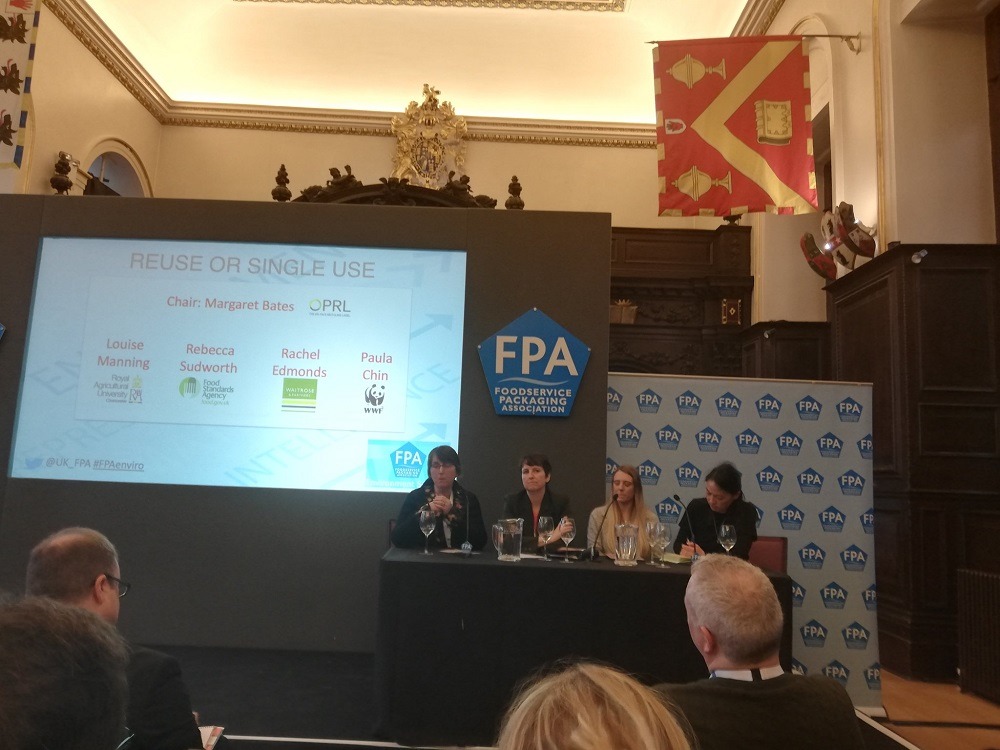Margaret Bates, professor of sustainable wastes management at Northampton University, was speaking at the FPA's Environment Seminar in London

She is due to take up her new role at the UK not-for-profit next month and will lead its project to make the country's voluntary recycling label "match fit for mandatory".
Demonising materials needs to stop, says the incoming executive director of the On-Pack Recycling Label (OPRL) body.
Margaret Bates, a professor of sustainable waste management at Northampton University, also believes the packaging industry needs to discuss how supply chains can take responsibility for the rubbish they receive.
She is due to take up her new role at the UK not-for-profit next month and will lead its project to make the country’s voluntary recycling label “match fit for mandatory”.
New OPRL exec on how packaging protects food
Speaking at the Foodservice Packaging Association‘s (FPA) Environment Seminar in London yesterday (23 January), Prof Bates said: “We need to stop demonising materials.
“This is because we’ve become really good at protecting the health of our food, you hardly ever hear of anyone who has food poisoning.
“I got delivered some mouldy, acid white tomatoes – and I thought, ‘when was the last time I saw that?’

“The answer is never, because we’ve gotten so good at delivering our food in a way that’s very easy for people to use, that we protects its health – which means it lasts for much longer.
“That’s all down to the packaging, and a lot of that is down to plastics.
“Although we are talking about producer responsibility, we also need to be talking much more about supply chain responsibility.”
UK at risk of developing two-tier food supply system
A growing industry trend over the past year has been the rise of reusable packaging schemes – which allow a consumer to fill containers with the produce they want.
Businesses testing these include UK-based supermarket chain Waitrose, which has trialled its Unpacked scheme at stores in Oxford, Cheltenham, and Abingdon.
Louise Manning, a professor of food agriculture and supply chain security at the Royal Agricultural University, fears reusable packaging systems could alienate low-income consumers and lead to a “two-tier” food supply chain.

She said: “It depends on how you define it, but 13 million people in the UK are living in food poverty and can’t even afford to buy a recyclable container.
“I think we are having a lovely discussion [about reusable packaging], but we also have to recognise there is a great injustice that fits within this, and we will have a two-tier food supply chain.
“We’ll have a food supply chain based upon the circular economy, and we’ll also have children in areas where their parents can only afford 80p for a bag of chips.
“I believe we really have to include everybody in this journey, and we really have to include every single voice in this journey.
“We have to address food waste, we have to address point of use – but we can’t keep this as a middle-class conversation.”
Earlier this month, fellow supermarket chain Asda announced it would trial refillable packaging at one of its stores in Leeds.
The World Wildlife Fund (WWF) charity’s UK sustainable materials specialist Paula Chin said: “It would be interesting to see how Asda’s refillable system goes down, as it has a much boarder customer base.”
